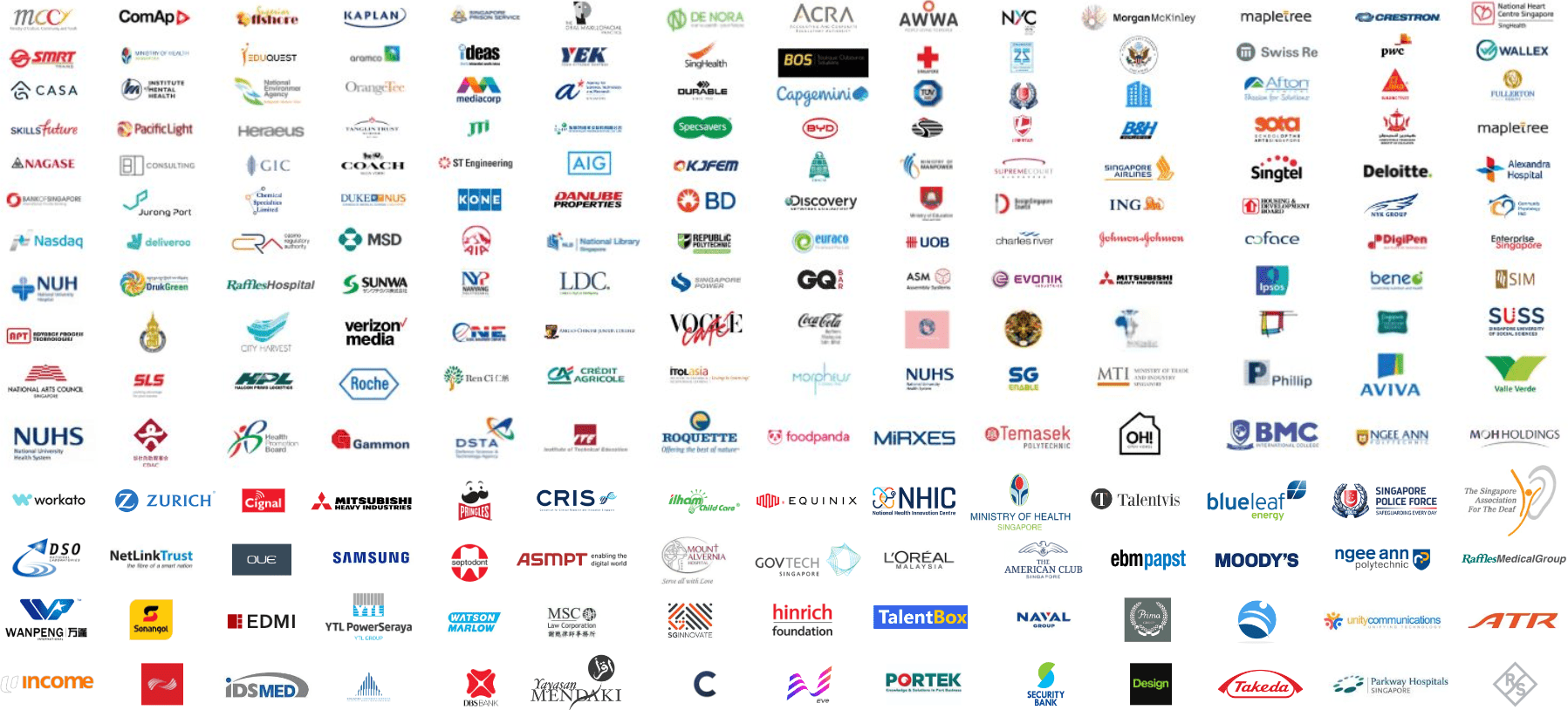Crisis Leadership Training Course in Sweden
Our Leadership Courses in Sweden is also available in Stockholm, Gothenburg (Göteborg), Malmö, Uppsala, Linköping, Västerås, Örebro, Norrköping, Helsingborg, Jönköping, Umeå, Lund, Borås, Eskilstuna, Gävle, Sundsvall, Södertälje, Karlstad, Täby, Växjö, Halmstad, Solna, Mölndal, Bromma, Sollentuna, Östersund, Trollhättan, Borlänge, Falun, Upplands Väsby, Visby, Kiruna, Gotland, Luleå, Kalmar, Karlskrona, Västerås, Sigtuna.
Welcome to the “Crisis Leadership Training Course in Sweden,” where leaders embark on a journey to hone their skills and strategies for navigating tumultuous times with resilience and confidence. In today’s fast-paced and interconnected world, crises can strike unexpectedly, presenting unique challenges that require swift and effective leadership. This course is designed to equip leaders in Sweden with the knowledge, tools, and mindset needed to lead with clarity and purpose in times of crisis.
As a country known for its stability, innovation, and progressive policies, Sweden faces its own set of challenges when it comes to crisis management. From natural disasters to economic downturns and public health emergencies, leaders must be prepared to navigate a wide range of crises while upholding the values and priorities of their organizations and communities. This course serves as a comprehensive guide to understanding the dynamics of crisis leadership within the Swedish context.
Throughout this course, participants will delve into a variety of topics, including crisis preparedness, communication strategies, stakeholder management, and ethical decision-making. Through interactive discussions, case studies, and simulations, participants will have the opportunity to apply theoretical concepts to real-world scenarios, honing their critical thinking and decision-making skills under pressure. Whether you’re a seasoned executive or an emerging leader, this course provides invaluable insights and practical tools to effectively lead your organization through turbulent times.
Furthermore, this course emphasizes the importance of collaboration and coordination among stakeholders, recognizing that crises often require a collective response from government agencies, businesses, NGOs, and the broader community. By fostering strong partnerships and communication channels, leaders can enhance their capacity to mitigate risks, respond effectively, and promote resilience in the face of adversity. Join us on this transformative journey as we empower leaders to navigate crises with confidence and purpose in Sweden and beyond. Welcome to the Crisis Leadership Training Course in Sweden.
Who Should Attend this Crisis Leadership Training Course in Sweden
Welcome to the “Crisis Leadership Training Course in Sweden,” a dynamic program designed to equip leaders with the essential skills and knowledge to effectively manage and lead through crises in the Swedish context. In an ever-changing world fraught with uncertainty, the ability to navigate and mitigate crises is paramount for organizational success and societal resilience. This course serves as a beacon of preparedness, guiding leaders through the intricacies of crisis leadership with practical insights and strategic foresight.
Leaders from various sectors, including but not limited to government officials, corporate executives, nonprofit leaders, emergency responders, healthcare professionals, and risk management specialists, will find immense value in this course. Whether you’re tasked with overseeing public safety, safeguarding corporate interests, or ensuring community well-being, the principles and strategies covered in this course are universally applicable and adaptable to diverse crisis scenarios. Additionally, professionals seeking to enhance their leadership capabilities and crisis management skills will benefit from the comprehensive curriculum and interactive learning experiences offered in this course.
Throughout this training program, participants will delve into the complexities of crisis leadership, exploring topics such as risk assessment, decision-making under pressure, crisis communication, stakeholder engagement, and post-crisis recovery. By examining case studies, engaging in simulations, and learning from seasoned experts in the field, participants will develop a robust toolkit to navigate crises with resilience, agility, and integrity. Join us as we empower leaders to lead confidently through uncertainty and adversity in Sweden and beyond. Welcome to the Crisis Leadership Training Course in Sweden.
- Executives
- Team Leaders
- Entrepreneurs
- Educators
- Recent Graduates
Course Duration for Crisis Leadership Training Course in Sweden
The “Crisis Leadership Training Course in Sweden” offers flexible durations to accommodate the busy schedules of leaders navigating crises. Participants can choose from immersive options such as a comprehensive 3 full-day workshop or a condensed 1-day intensive session. For those seeking a quick yet impactful overview, there are also options for a focused half-day seminar or concise 90-minute and 60-minute modules, all designed to equip leaders with essential crisis management skills tailored to the Swedish context.
- 2 Full Days
- 9 a.m to 5 p.m
Course Benefits of Crisis Leadership Training Course in Sweden
Unlock the potential of effective crisis leadership with the “Crisis Leadership Training Course in Sweden,” designed to equip leaders with the skills and strategies to navigate and mitigate crises successfully.
- Develop the ability to assess and manage risks effectively during crises.
- Enhance decision-making skills under pressure.
- Improve crisis communication strategies to maintain transparency and trust.
- Strengthen collaboration and coordination among stakeholders.
- Foster resilience and adaptability in the face of adversity.
- Gain insights from real-world case studies and simulations.
- Build confidence in leading organizations through turbulent times.
- Learn ethical considerations and dilemmas in crisis leadership.
- Develop post-crisis recovery plans to ensure organizational continuity.
- Network and share best practices with fellow leaders and crisis management experts.
Course Objectives for Crisis Leadership Training Course in Sweden
The “Crisis Leadership Training Course in Sweden” aims to equip participants with the knowledge and skills necessary to lead effectively through crises, fostering resilience and organizational readiness. Throughout the course, participants will develop comprehensive crisis management strategies tailored to the Swedish context, ensuring the ability to navigate and mitigate diverse crises successfully.
- Understand the unique challenges and opportunities of crisis leadership in Sweden.
- Identify key stakeholders and establish effective communication channels during crises.
- Analyze past crisis management successes and failures to inform future strategies.
- Develop crisis response plans that prioritize the well-being of stakeholders and the community.
- Implement strategies to maintain organizational stability and continuity during crises.
- Utilize technology and digital platforms to enhance crisis communication and coordination.
- Cultivate a culture of transparency, trust, and accountability within the organization.
- Enhance collaboration with external partners, including government agencies and NGOs, to optimize crisis response efforts.
- Address ethical dilemmas and considerations in crisis decision-making.
- Evaluate and adapt crisis management strategies based on lessons learned and emerging best practices.
- Foster resilience and well-being among team members to navigate crises effectively.
- Lead organizational recovery efforts following a crisis, ensuring long-term sustainability and growth.
Course Content for Crisis Leadership Training Course in Sweden
Unlock the potential of effective crisis leadership with the “Crisis Leadership Training Course in Sweden,” delving into comprehensive content designed to equip leaders with essential skills and strategies for navigating and mitigating crises successfully.
- Understanding Unique Challenges and Opportunities:
- Explore the specific challenges and opportunities of crisis leadership within the Swedish context.
- Analyze how Sweden’s cultural, political, and economic landscape influences crisis management strategies.
- Identify Key Stakeholders and Communication Channels:
- Identify the primary stakeholders involved in crisis situations, both internal and external.
- Establish effective communication channels to ensure timely and accurate information dissemination during crises.
- Analyzing Past Crisis Management:
- Study past crisis management cases in Sweden to understand what worked and what didn’t.
- Extract lessons learned from past successes and failures to inform future crisis strategies.
- Developing Crisis Response Plans:
- Create comprehensive crisis response plans that prioritize the well-being and safety of stakeholders and the community.
- Ensure that crisis response plans are adaptable and responsive to different types of crises.
- Implementing Organizational Stability Strategies:
- Implement strategies to maintain organizational stability and continuity during times of crisis.
- Ensure that essential business functions and operations can continue despite disruptions.
- Utilizing Technology for Crisis Communication:
- Explore how technology and digital platforms can enhance crisis communication and coordination.
- Utilize social media, mass notification systems, and other digital tools to disseminate information and gather feedback during crises.
- Cultivating a Culture of Transparency and Trust:
- Promote a culture of transparency, trust, and accountability within the organization.
- Encourage open communication and information sharing among team members.
- Enhancing Collaboration with External Partners:
- Strengthen collaboration with external partners, including government agencies, NGOs, and other organizations.
- Establish partnerships and communication channels in advance to facilitate coordinated crisis response efforts.
- Addressing Ethical Dilemmas in Crisis Decision-Making:
- Discuss ethical dilemmas and considerations that may arise in crisis decision-making.
- Explore strategies for making ethical decisions under pressure.
- Evaluating and Adapting Crisis Management Strategies:
- Regularly evaluate crisis management strategies based on lessons learned and emerging best practices.
- Be open to adapting strategies to address evolving threats and challenges.
- Fostering Resilience and Well-being:
- Foster resilience and well-being among team members to help them cope with the stresses of crisis situations.
- Provide support and resources to help employees maintain their mental and emotional well-being.
- Leading Organizational Recovery Efforts:
- Lead organizational recovery efforts following a crisis, focusing on long-term sustainability and growth.
- Develop strategies for rebuilding trust, restoring operations, and ensuring continuity.
Upcoming Course and Course Brochure Download for Crisis Leadership Training Course in Sweden
Stay tuned for exciting updates and be the first to receive brochures detailing the enriching content and benefits of the “Crisis Leadership Training Course in Sweden.” Whether you’re looking to enhance your crisis management skills or empower your team to navigate turbulent times with confidence, this course offers valuable insights and practical strategies tailored to the Swedish context. Don’t miss out on this opportunity to unlock the potential of effective crisis leadership with our comprehensive training program.


